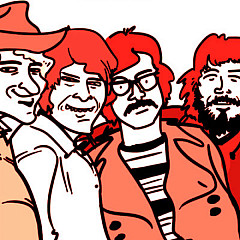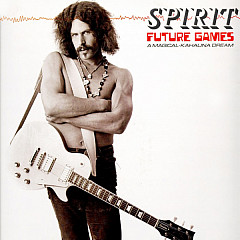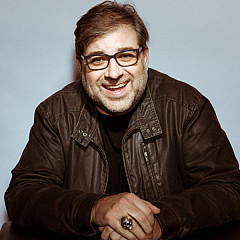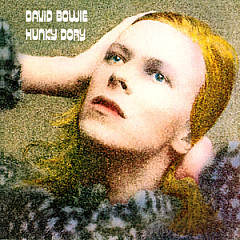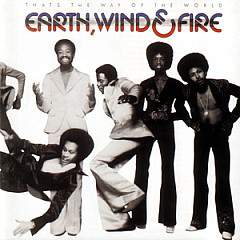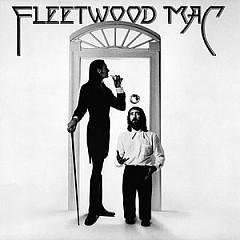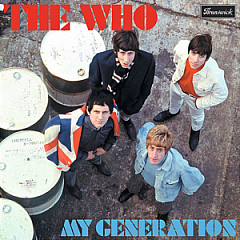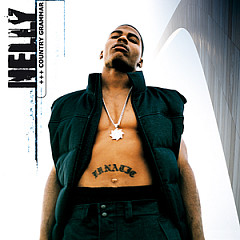Brooker is also the group's lead singer and pianist. In addition to his work with Procol, he was part of Phil Spector's sonic masonry on George Harrison's All Things Must Pass, and on much of Eric Clapton's '80s output. We had the good fortune to speak with Gary about his songwriting and inspiration.
Gary Brooker: Well, I wouldn't entirely agree with Reid's synopsis there. He might think it, because when he writes lyrics, he hasn't heard any music to them, so he thinks they exist first. But what about a scenario where he's at home writing lyrics, and I am also at home writing song ideas? And then at some point the two come together. And by me looking at his lyrics, I will see that I've got a really good musical idea that will fit with them.
So in answer to your question, Carl [laughs] it's not as difficult as you might have expected to write music to lyrics. Because the ideas might already be there, and eventually I find one of Keith's lyrics that fit with my musical idea.
Songfacts: So in the same way that Keith is writing down ideas on pieces of paper, which are words, you are similarly coming up with musical ideas constantly?
Gary: Yeah. That's it. But of course now and again there's a lyric - and it's usually a really good one - and if you haven't got a musical idea, you can write something to it.
Songfacts: Do you have any examples of songs where you looked at a lyric and that has inspired a musical idea?
Songfacts: Are there any other examples of songs that you remember thinking about how well your music went with the lyrics?
Gary: Hopefully all of them. [laughing] Usually the best combinations do happen very naturally. If we take something like "A Salty Dog," that was a musical idea, it's very much a type of chord progression with a certain rhythm. And I think soon after I got that idea, Keith sent me the words and they were already done, and they just seemed to fit with it very, very easily.
Songfacts: Would you ever change or reject the lyrics that Keith gave you?
Gary: No, I would never think of it. Because I knew that he had thought very carefully about every single word. Every "V" and "N," there wasn't anything - I mean, if I tried to take even a small adjective out of a line, it would be strongly resisted by Keith, because that would take away the sense that he had. Therefore, I've never needed to change his lyrics.
He's mellowed out a bit over the years, and recently I said something like, "I want to have a long note on the end of this line, and yet that word there, I cannot make it last long singing it." There are words like that. And he will quite willingly think of something else without changing the meaning at all.
Songfacts: How do you typically write?
Gary: Personally? Music-wise?
Songfacts: Yeah.
Gary: I sit down at the piano and improvise, really. I sit down at the piano, and I just play things that I haven't played before, and I try to invent, and I do that until I go, "Oh, I like that bit." And I run 'round it a couple of times, and then see where that leads to something else. So it's very much improvisation, and coming up with rhythmic and chordal ideas.
But, of course, always I'm humming, I'm thinking of a melody in my head to go with those particular chords and rhythms. Because luckily I'm the singer as well. When I play around on the piano and think up some chords and ideas, the tune is there, as well, in my head.
Songfacts: Can you sit down and say, "I'm going to write today from 3 o'clock to 5 o'clock," or do you have to wait for inspiration to strike?
Gary: I have to wait for inspiration to strike. I used to sit down almost every morning - it was usually mornings for some reason. Morning has always been a good idea time for me rather than late at night. Sometimes you think you can do it, but I think the morning ideas have always been better than the nighttime ideas.
As time goes on, as the years go on, you seem to have less and less and less time. I think whatever profession you're in, everybody would agree with that. We've got to have lots of things that help us, that make life easier. But you end up looking at emails for two hours a day, and by the time you get through everything, you sometimes don't feel like going and playing the piano.
Songfacts: That's interesting that you talked about email and technology. Can you talk about how recording technology has affected your work?
We will always record a song all the way through and I will sing it all the way through as well. So we don't use the technology of correction. We just use it because you can do two or three or four songs in a day, where getting exactly the right sound with the old technologies used to sometimes take a day or more.
Songfacts: Considering that you write on a piano, and that you need to wait for the inspiration to strike, do you have any trouble finding a piano when this inspiration happens?
Gary: I don't get inspired if I can't see a piano. I think in my life I've written one song while sort of sitting up against a wall somewhere. And in fact I wrote a song and all the lyrics while I was sitting waiting for something to happen. And that's been about the only song that's ever done it.
Songfacts: What song was that, Gary?
Gary: It was on a solo album of mine, it's called "The Angler."
Songfacts: So how did that come about?
Gary: Well, I went up to Oregon. I was a fly fisherman, you see, and I went fishing for steelhead. It actually took me two weeks to finally land one, and it was a beauty. And I managed to put it back, as well, so it lived to swim again, and I just photographed it and weighed it and things. Took some good pictures and somebody up there made me a model of it in the end. But I then went back euphorically to these friends' house I was staying with, and nobody was in. It was like 4 in the afternoon. So I went and bought a six-pack of malt liquor, which is like strong beer, really. And I thought, well, when they come we can have a beer. But they took so long I sat there and I had a couple of these malt liquors, and I started to think about the two weeks that I just spent all over Oregon and Washington in search of this elusive steelhead, and the adventures I'd had on the way. And they took a real long time to come home, these people, and I was sitting there for about two or three hours. I finished the six-pack and finished the song.
Songfacts: But most of the time you like to have a piano where you can see it. Does that mean when you're on the road you try to have a piano close by?
Gary: These days, you don't get that sort of time on the road. In the old days, like with Procol touring around America in 1969 or something, we used to be there for two or three months at a time. We'd try and base ourselves in say, New York State somewhere, and we'd have a motel, and I'd have a piano in my room. The days where we weren't playing or we didn't set off until 4 in the afternoon, I'd tinkle around on the piano. These days we find it's, "What time's the flight," or "What time's the bus leaving?"
There's very, very little time to actually sit down when you're on the road. Now and again with a soundcheck - I mean, they're always noisy and busy, but you might sort of whilst warming up on your instrument try a few chords out and you might get the gist of something. But you get very little time - it's a different place every night. I don't carry 'round a portable keyboard. It's not practical, because we do fly quite a lot, and it's not an easy thing to get on the plane these days.
 Procol Harum, L-R: Josh Phillips, Gary Brooker, Geoff Dunn, Matt Peg, Geoff Whitehorn. Photo: Simon Thiselton
Procol Harum, L-R: Josh Phillips, Gary Brooker, Geoff Dunn, Matt Peg, Geoff Whitehorn. Photo: Simon ThiseltonGary: Oh, that's a tough question. I'd have to think about that. Well, I would say something off of the Edmonton Symphony Live album. I don't mind which one, really. But it always gives one a great deal of pleasure if you know that when you sing live, that you sing as well or better than you did in the studio. And, of course, when you get excited, when you're playing on stage, a bit more adrenaline, it always fits well in with the feeling.
When we played in Edmonton with the Edmonton Symphony Orchestra that first time, it was a very inspiring evening, and there was a lot of good music going on from everybody, and the vocals had to get over it all. So I would say something off there.
Songfacts: It must be very different, also, when you're singing live as opposed to a studio environment.
Gary: Well, it's easier. It's much easier on stage than in a studio.
Songfacts: Why is that?
Gary: Well, usually, what you're singing in a studio, you haven't really sung before. You are recording that song for the first time. Sometimes I walk up to the microphone and it's the first time I've had a serious go at it with the backing going on. When we record in the studio, we always have a vocal mike up at the keyboard, so I always sing all of them the same time as playing. And very often those guide vocals are what gets used on the finished recording. So it's much easier to sing and play and just be natural about it - which is what it's like on stage - than standing in a booth crafting something.
Songfacts: What do you consider the most difficult Procol Harum song to perform?
Gary: Most difficult... well, we've got a couple of songs that we don't even play because they're so difficult.
Songfacts: What are some examples of songs you can't even take on the road with you?
Gary: Well, we will one day, but we've got one called "The Thin End of the Wedge," which was on Exotic Birds and Fruit, which is, for some reason, a quite difficult piece to play and get the vocal across. I mean, if you heard it, you'd probably see why.
But when I write a tune, I'm able to sing it, so I haven't written something that I can't sing. Nothing is really that difficult. It's easy sometimes because all you've got to do is put yourself into it. Some songs I must have sung thousands of times. Of course, they've been around for 40 years, you know. "A Salty Dog" or "A Whiter Shade of Pale" or anything, but I always put myself into them. The lyrics are interesting enough that every time you sing them you can always, if you feel like it, just think of it in a different way, as you are vocalizing.
Songfacts: The last thing I have for you, Gary, I was reading about how you recorded "Wizard Man" thinking of it as a single. What's the difference between a song being recorded for single release as opposed to all your other songs?
Gary: Well, what you are saying - asking now, what is a hit? I think that any song that's going to immediately capture people and stay with them for a bit.
What happens with a song that becomes a hit is that people want to hear it again, they've got to hear it again. Therefore, that requires what we call "hooks," doesn't it? And hooks can be all sorts of things, they can be just a little turnaround in the song. Often the people that aren't musicians, the producers and the people at record companies, are the ones that pick up on what is the hook. It might be an unimportant part of the song to you, but suddenly that is the part of the song that captures you. That's the part that hooks you and gets you in.
So if you're thinking of a single, then you've got to have hooks and/or you've also got to have something that's quite different to everything else that's around. I think "A Whiter Shade of Pale" fell into that category, something like - what's the one by the Irish girl that was a Prince song? "Nothing Compares." That's got lots of hooks in it, also. It was very different to whatever else was around musically, off the wall and interesting. We don't always want what we heard last week. It doesn't mean to follow the fads and fashions is what makes a success, often it's the complete opposite of that. The go-where-no-man-dares-to-tread.
We spoke with Gary on October 14, 2010
More Songwriter Interviews


